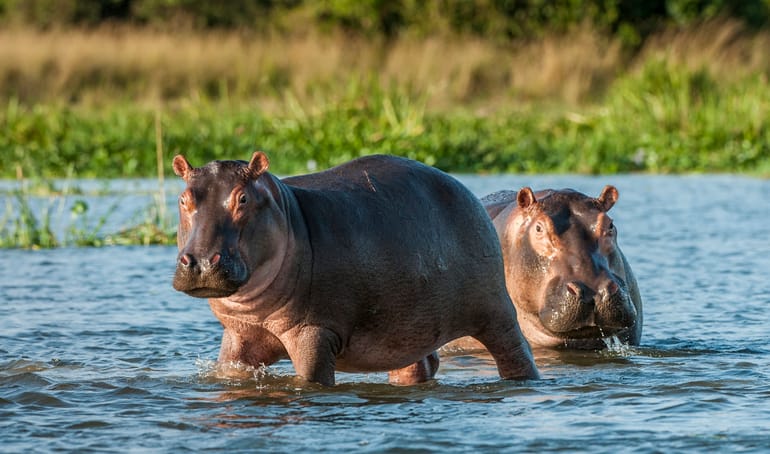Pablo Escobar’s infamous “Cocaine Hippos” have been given a historical distinction: they’re the first non-humans to be considered people by a US court. The decision announced on October 20 comes as a relief and a triumph to many who campaigned against authorities’ desire to kill the animals to rid Colombia of what they consider an invasive species. An attorney from the country, Luis Domingo Gomez Maldonado, filed a lawsuit in July 2020 on the hippos’ behalf to save their lives and has been working tirelessly to ensure their safety. And now, a US-based animal welfare agency is getting involved too.
- Escobar smuggled the animals back to Colombia to keep as pets. More than three decades ago, the infamous drug lord not only managed to smuggle the hippos onto a private zoo on his property, but he also brought back elephants, zebras, giraffes, camels, and ostriches.
- Most of the animals were given to zoos after Escobar’s death in 1993. When his property was seized, all of his animals were given to various zoos but the hippos were allowed to stay. After all, there were only four of them and transporting them would be a major problem.
- The hippos multiplied. Instead of there being only four hippos, it’s now estimated that nearly 120 hippos are roaming about roughly 120 miles from the capital. Local residents fear for their safety because the dangerous animals and some worry about the environmental impact they might have. They’ve already begun to displace native species and change the chemistry of the local waterways.
- The animals have started to be sterilized. Maldonado suggested this might be a kinder alternative to killing them, so chemical contraceptives were given to sterilize the breeding group. However, Maldonado wanted to change the contraceptive used on the animals, 24 of which are now believed to be sterile.
- The Animal Legal Defense Fund in the US recently got involved. The animal advocacy organization filed a legal application to send out two Ohio-based wildlife experts to represent the hippos. “Animals have the right to be free from cruelty and exploitation, and the failure of U.S. courts to recognize their rights impedes the ability to enforce existing legislative protections,” Stephen Wells, the executive director of the Animal Legal Defense Fund, said. “The court’s order authorizing the hippos to exercise their legal right to obtain information in the United States is a critical milestone in the broader animal status fight to recognize that animals have enforceable rights.”
- The application being granted gave the hippos people status. “This U.S. statute allows anyone who is an ‘interested person’ in a foreign litigation to request permission from a federal court to take depositions in the U.S. in support of their foreign case,” a statement from the ALDF read. “The US Supreme Court has said that someone who is a party to the foreign case ‘no doubt’ qualifies as an ‘interested person’ under this statute. The Animal Legal Defense Fund reasoned that since the hippos are plaintiffs in the Colombian litigation, they qualify as ‘interested persons’ under this statute.”



